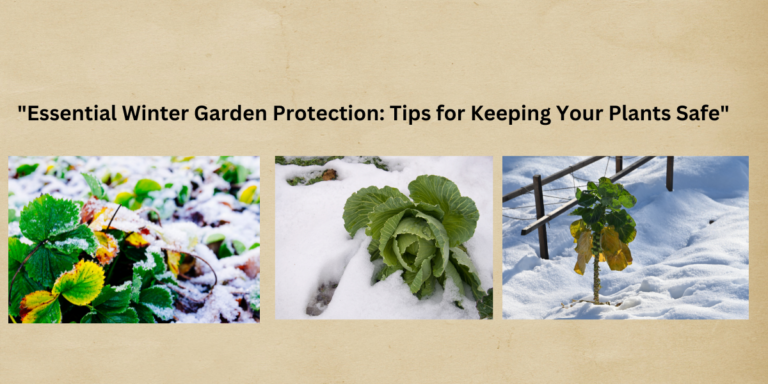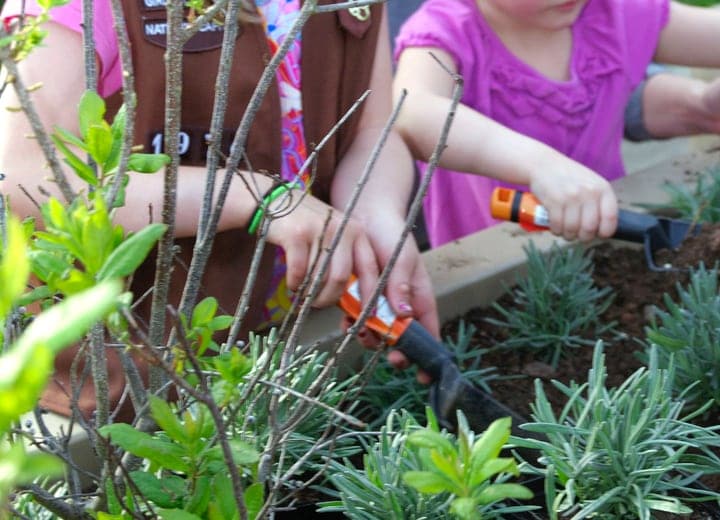introduction
As the colder months approach, many gardeners find themselves wondering how to safeguard their beloved plants from the harsh winter elements. Protecting your garden during winter is essential for ensuring that your plants survive and thrive when spring arrives. This article provides practical tips and strategies to help you keep your garden healthy through the winter season.
- Understanding Winter Garden Challenges
Winter presents several challenges for gardens, including frost, snow, ice, and varying temperatures. Understanding these challenges is the first step toward effective protection:
Frost Damage: Frost can damage tender plants, causing them to wilt and die. Most plants are particularly vulnerable during the early morning when frost is most prevalent.
Soil Erosion: Heavy snowfall and rain can lead to soil erosion, which disrupts the root systems of plants.
Pests: Some pests, like aphids and spider mites, can survive winter and emerge when temperatures rise, posing a threat to new growth in spring
Preparing Your Garden Before Winter
Preparation is key to protecting your garden during the winter months. Here are essential steps to consider:Clean Up
Remove Debris: Clear fallen leaves, dead plants, and other debris from your garden. This helps prevent mold growth and pests from overwintering .
Cut Back Perennials: Trim back dead foliage on perennials to prevent disease and pests from taking hold
Soil Preparation
Soil Testing: Conduct a soil test to determine nutrient levels. Amend the soil accordingly to promote healthy plant growth come spring
Mulching: Apply a layer of mulch to protect the soil. Mulch helps retain moisture, moderate soil temperature, and suppress weeds
- Choosing the Right Mulch
Choosing the right type of mulch is vital for winter protection. Here are some common options: - Straw: Excellent for insulating soil and preventing frost heave, straw is lightweight and easy to apply.
- Wood Chips: These offer good insulation and are beneficial for the soil as they break down over time.
- Bark Mulch: Provides aesthetic value while helping retain soil moisture and regulate temperature
- Covering Your Plants
Using protective coverings can shield your plants from cold temperatures and frost. Here are some effective methods:
Row Covers
Frost Cloths: Lightweight, breathable fabric that allows sunlight in while providing insulation against frost. They can be used to cover individual plants or entire rows.
Plastic Tunnels: For larger gardens, plastic tunnels or cold frames can create a mini-greenhouse effect, keeping temperatures warmer around plants
Plant Jackets
Insulated Plant Jackets: Designed to wrap around plants, these provide extra warmth and protection against frost damage .
- Watering and Fertilization Considerations
- As temperatures drop, the needs of your plants change. Proper watering and fertilization can enhance winter survival:
- Watering
- Water Before Freezing: Ensure your plants are well-watered before the ground freezes. This helps them survive the winter months
- Avoid Over-Watering: Be cautious with watering during winter; too much moisture can lead to root rot in frozen soil .
- Fertilization
- Fall Fertilization: Apply a slow-release fertilizer in the fall to help plants build resilience against winter stress. Choose fertilizers that promote root growth
- Winter Gardening Activities
Winter doesn’t mean the end of gardening! Engage in these activities to stay productive during the colder months:
Planning: Use this time to plan your spring garden layout. Consider crop rotation and companion planting for improved yields .
Winter Sowing: Some hardy seeds can be sown directly into the garden during winter. Use containers to protect them from harsh weather
FAQs
- What is the best way to protect my garden from frost?
Covering plants with frost cloths or blankets on cold nights is the best way to prevent frost damage. Additionally, watering plants before a freeze can help insulate them . - Should I water my garden in winter?
Yes, it’s important to ensure your plants are well-hydrated before the ground freezes. However, reduce watering frequency during freezing conditions to prevent waterlogging - How can I protect my potted plants in winter?
Move potted plants to a sheltered location, such as a garage or shed, to protect them from cold winds. Alternatively, wrap pots with insulating materials - Is it necessary to remove dead plants in winter?
Yes, removing dead plants and debris helps prevent disease and pests from overwintering in your garden
What should I do with my vegetable garden in winter?
Prepare your vegetable garden by cleaning up debris, applying mulch, and protecting any hardy winter crops with covers
Conclusion
Protecting your garden during winter is crucial for its health and success in the coming growing season. By understanding the challenges posed by winter, preparing your garden adequately, and using protective measures, you can ensure that your plants not only survive but thrive. With the right strategies in place, you can look forward to a vibrant and flourishing garden when spring returns.





